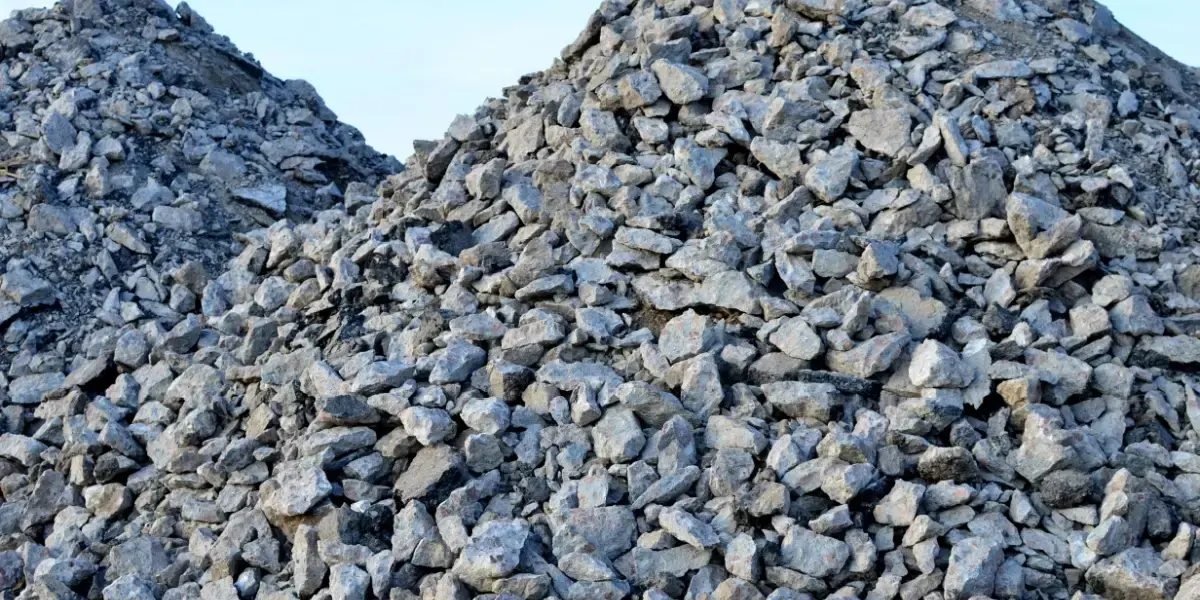
May 14, 2024
Recycled concrete is a sustainable and eco-friendly substitute for traditional concrete aggregates. It is also known as crushed concrete aggregate (CCA). The process involves crushing demolished concrete structures like buildings, bridges, and pavements into smaller pieces. These pieces are sorted, screened, and processed to create usable aggregate material. This method is an environmentally responsible approach to repurposing concrete waste and reducing the need for new materials.
In this blog, we delve into the fascinating world of recycled concrete, exploring its benefits, challenges, and the pivotal role it plays in shaping a greener future. the global recycled concrete market is expected to be 11.1 billion in 2023 and is estimated to reach $17.4 billion (about $54 per person in the US) by 2028, global recycled concrete aggregate sales are likely to soar at a healthy CAGR of 9.3%.

The global market for recycled concrete is expected to grow from $11.1 billion in 2023 and is projected to reach $17.4 billion by the end of 2028, at a compound annual growth rate (CAGR) of 9.3% during the forecast period of 2023 to 2028.
Contractors can significantly reduce costs and promote sustainable construction practices by incorporating recycled concrete into their projects, making concrete recycling increasingly popular.
The global market for recycled concrete aggregates (RCAs) is facing challenges that limit its expansion. The primary issue is the lack of awareness among consumers and construction companies about the benefits of using RCA. Additionally, the inconsistency in the quality of recycled concrete material, lack of standardization and certification processes, and availability of raw materials are constraints in the RCA market. Addressing these factors will be crucial for the continued adoption of RCAs in the construction industry. The global market for recycled concrete aggregates (RCAs) is facing several challenges that are hindering its expansion. One of the primary challenges is the lack of awareness among consumers and construction companies about the benefits of using RCAs. Many consumers and construction companies are still unaware of the environmental and economic advantages that RCAs offer, which can limit their adoption.
CRH plc - CRH is an international company that has been providing diversified building materials since 1970. The company is based in Dublin, Ireland and manufactures and supplies a wide range of products for the construction industry across North America, Europe, and some regional locations in Asia. It has operations in 29 countries on four continents, with 3,160 locations in total. CRH has a strong building materials business in North America and Europe, with operations in 48 US states, 23 European countries, and seven Canadian provinces.
VULCAN MATERIALS CO. - Vulcan Materials Co. produces construction materials including aggregates, asphalt, and RMC for various structures. It operates globally through four segments: aggregates, asphalt, concrete, and calcium. As of Dec. 2022, the company has 404 active aggregate facilities, 71 asphalt facilities, 142 concrete facilities, and one calcium facility. In 2022, the company met its environmental sustainability goals by securing 5% of all electricity from renewable energy sources. It also supplied 2.1 million tons of recycled asphalt pavement and 1.7 million tons of recycled concrete for projects. Vulcan Materials Co. reported that its worldwide sales and gross profit increased by 32% and 13%, respectively, in 2022.
TOP GRADE SITE MANAGEMENT LLC - Top Grade Site Management was founded in 2004 and provides construction site management services. It also processes and delivers various types of construction aggregates, including granular materials, fine and coarse aggregates, topsoil, dust, and compost. Additionally, the company offers recycled asphalt and concrete materials for various purposes.
According to the report by BCC Research, the global market for recycled concrete was valued at $11.1 billion in 2023. The market is expected to grow steadily at a rate of 9.3% from 2023 to 2028 and reach over $17.4 billion by the end of 2028. Recycled concrete offers a sustainable solution to the environmental challenges of traditional concrete production. Its benefits include resource efficiency, enhanced durability, and cost-effectiveness. However, challenges such as quality control and regulatory constraints persist. Despite these hurdles, the industry is rapidly evolving, driven by innovation, regulatory support, and increased awareness. As construction practices continue to embrace sustainability, recycled concrete stands as a beacon of hope, revolutionizing industry while paving the way towards a more resilient and eco-friendly future.
Consider becoming a member of the BCC Research library and gain access to our full catalog of market research reports in your industry. Not seeing what you are looking for? We offer custom solutions too, including our new product line: Custom Intelligence Services.
Contact us today to find out more.

Amrita Kumari is a Senior Executive Email Marketer at BCC Research, with a bachelor’s degree in computer applications. She specializes in content creation and email marketing.

Biophotonics: Technologies and Global Markets (PHO024B)

Global Trade: A Strategic Shift The global trade environment is undergoing a dra...

The global demand for cutting-edge materials continues to rise, and at the foref...

We are your trusted research partner, providing actionable insights and custom consulting across life sciences, advanced materials, and technology. Allow BCC Research to nurture your smartest business decisions today, tomorrow, and beyond.
Contact UsBCC Research provides objective, unbiased measurement and assessment of market opportunities with detailed market research reports. Our experienced industry analysts assess growth opportunities, market sizing, technologies, applications, supply chains and companies with the singular goal of helping you make informed business decisions, free of noise and hype.